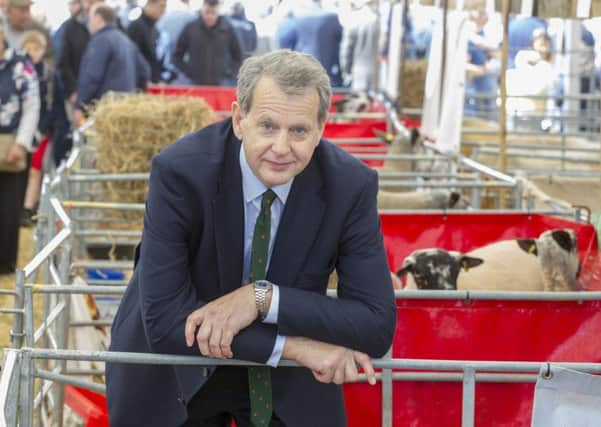Bank's new agricultural head Brian Richardson urges farmers to raise summer heat financial concerns now


Seasoned agri-business professional Brian Richardson was appointed to the role at CYBG, the owner of Clydesdale and Yorkshire Banks, at the start of last month and has been meeting the farming fraternity, including at the Great Yorkshire Show in Harrogate, to understand the current pressures they face.
Assessing the current situation in an interview with The Yorkshire Post, Mr Richardson said: “We came into the summer period on the back of a period of reasonable market prices but the dry weather has certainly caused a lot of challenge for farmers, particularly livestock and grassland farmers. Hopefully this cooler weather will take the pressure off a little bit.”
Advertisement
Hide AdAdvertisement
Hide AdForage stocks derived from summer grass cuts have been depleted by a lack of growth caused by the recent hot weather and a cold, wet spring, and with the growing season expected to peter out over the coming month there is little opportunity for farmers to build up supplies.
Homegrown grass used as silage is a cost-effective way to feed livestock over the lean winter months but many farmers are already feeding their animals this summer’s crop because grazing has been hit by the limited grass growth.
Mr Richardson stressed that Yorkshire Bank wanted to work with farmers to help them through a difficult spell.
“From a banking point of view, we take a long-term view. Another month will tell us what damage has been done. It will be late-autumn and into winter when it starts to bite financially for livestock farmers. On the cereals side, prices are on an upward trend.”
Advertisement
Hide AdAdvertisement
Hide AdHe said he believed Yorkshire Bank was well placed to understand farmers’ circumstances as they work through any challenges.
“We have a lot of specialists who are on the ground talking to farmers,” Mr Richardson said. “If you are going to be in a challenging situation, talk to us sooner rather than later and we will work though any challenges that come up.
“Some farmers are in a very extreme position. They have had no grass, it’s all been burnt off. We will support farmers through that. A lot are already talking to us about how they see things and if they are going to run into a tough patch, they know when that’s going to come.”
Mr Richardson said lenders had increasingly been presented with farmers’ diversification plans over recent years as they look to build greater financial resilience into their businesses.
Advertisement
Hide AdAdvertisement
Hide Ad“Farmers are looking for new income and ways to diversify or do things better,” he said. “In the dairy sector for example there has been a lot of investment in getting the cost of production down.”
The Government’s recent Farm Business Income survey shows how heavily reliant farms are on EU support payments. Average profits for Yorkshire farms were £103 per acre over the last five years, with subsidies worth £73 per acre in the same period.
The Government has guaranteed subsidies will remain at the current EU level until 2022, but it has outlined plans to link support to environmental gains on farms and the delivery of as-yet-undefined “public goods”, moving support away from area-based payments. The current stability should be utilised by farmers, Mr Richardson said.
“Farmers have a chance to look forward and plan for the future - how can they adapt and look to become more efficient?”